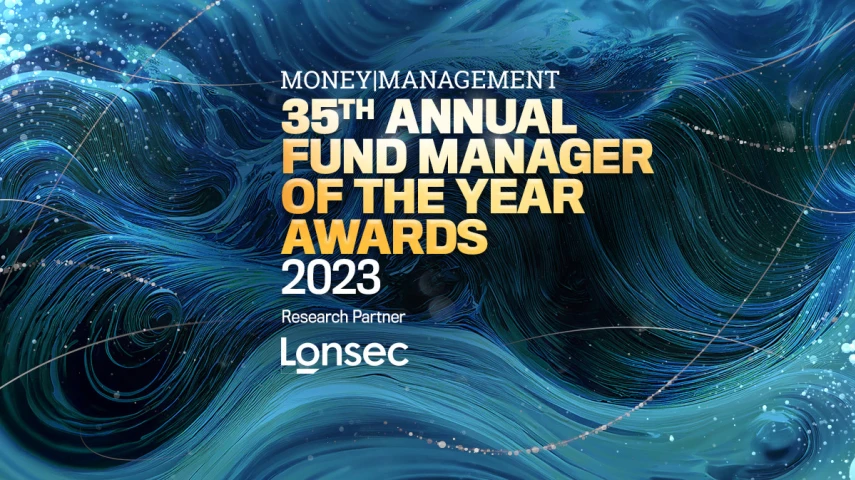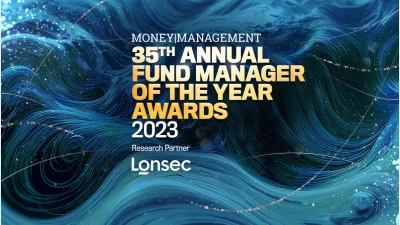FMOTY 2023: Spotlight on Passive Assets



Ahead of the 2023 Fund Manager of the Year Awards on 22 June, Money Management spoke to finalists for the Passive — Other Asset Class Fund of the Year.
The finalists in the category are:
- Betashares Australian Bank Senior Floating Rate Bond ETF
- Global X Physical Gold ETF
- iShares Core Composite Bond ETF
- iShares Global Bond Index Fund
- VanEck Australian Floating Rate ETF
Click here to view the full list of finalists.
Providing investment offerings into gold and other fixed income exposures, these high-performing funds created some safe haven for investors even as equity markets have been experiencing increased volatility over the last year.
Nominated for its iShares Core Composite Bond ETF and iShares Global Bond Index Fund, BlackRock noted that fixed income as a risk diversifier to a broad diversified portfolio had seen significant inflows as investors reweight into a less volatile asset class compared to equities.
“Fixed income is starting to offer some good value to investors and if history is any guide, the best entry point is near the top of the rate hike cycle, which we are arguably getting closer to,” a spokesperson told Money Management.
“Bond yields have significantly increased and the income generating capacity of fixed income is once again playing its key role for investors.”
They noted that the core composite bond offering had met investment objectives and had established a long-term track record of consistent performance.
The spokesperson added: “The fund has been able to consistently minimise deviance from its underlying index meaning risk adjusted returns remain in line with its investment objectives.”
Over at Betashares, head of fixed income, Chamath De Silva believes its innovative product provides attractive income that is normally more than the income offered by cash and short-dated term deposits, offering exposure to senior-ranking floating rate notes issued by Australia’s largest banks.
“Our QPON ETF has helped retail and advised investors gain exposure to a part of the market that has historically been the domain of institutional investors in a convenient and cost-effective ETF vehicle,” De Silva said.
“Our QPON ETF has resonated with investors over the past 12 months as the Reserve Bank of Australia has embarked on the fastest rate hiking cycle in a generation. In the past year, the fund has received over $350 million of net inflows as investors took advantage of the increased income on offer from floating rate notes.”
It had provided returns of 4.14 per cent over the 12 months to 31 May and currently offers an all-in yield of 5.18 per cent.
“With Australian inflation still stubbornly high, the market is pricing in further rate hikes from the Reserve Bank of Australia, as they seek to bring price pressures under control. In this climate, QPON’s variable coupon allows investors to benefit from any potential future rate hikes, with incomes from floating rate notes typically moving in line with changes in policy rates,” he added.
VanEck agreed that concerns about rising rates had prompted many investors to consider moving out of longer-duration bonds. For the firm, it translated into recent strong flows for floating rate products.
“Floating rate notes (FRNs) are designed to move in parallel with short-term interest rates, providing protection against short-term rate rises. FLOT provides investors with a dedicated Australian FRN market benchmark exposure,” said Arian Neiron, chief executive and managing director, Asia Pacific.
While Australian bonds, as represented by the Bloomberg AusBond Composite, fell over 9 per cent in 2022 as rates rose, the fund had a positive return.
It was prepping itself for one or even two more rate rises in coming months, given stubborn inflation and a tight labour market.
“With this in mind we expect the yield on floating rate instruments to increase above the current 5 per cent p.a. level and remain elevated for some time. Credit spreads are higher than they were in March 2020 and we expect them to remain attractive,” Neiron added.
Earlier this year, Global X’s physical gold offering saw its 20th anniversary on the ASX, a notable event given it was the first physical gold exchange-traded product in the world.
“[It] highlights our approach to producing innovative solutions for Australian investors. It’s for this reason we believe GOLD has been nominated, alongside our decades of research which have positioned the fund as the gold standard in its category,” Global X ETFs’ CEO, Evan Metcalf, told Money Management.
“GOLD has been performing well in light of the gold price reaching all-time highs this year. This showcases how well GOLD tracks the underlying gold price to give investors a way to invest in physical gold without the fuss of having to store it themselves or take a bet on individual gold mining stocks.”
He added that it had lived up to its reputation of being a safe haven asset and all eyes would remain on the Fed and Reserve Bank of Australia’s interest rate calls over the next 12 months.
“We are continuing to see investors incorporate it into their portfolios as a form of insurance as well as a source of capital growth over the longer term,” he said.
“While many are now anticipating a soft landing, it’s not guaranteed. As such, gold could benefit from lingering volatility. We expect investors will continue to allocate to physical gold in the near and long-term as the market digests central bank monetary policy, persistent global inflation data and subsequent moves in the US dollar.”
Recommended for you
Clime Investment Management has welcomed an independent director to its board, which follows a series of recent appointments at the company.
Ethical investment manager Australian Ethical has cited the ongoing challenging market environment for its modest decrease in assets over the latest quarter.
Commentators have said Australian fund managers are less knowledgeable compared with overseas peers when it comes to expanding their range with ETFs and underestimating the competition from passive strategies.
VanEck is to list two ETFs on the ASX next week, one investing in residential mortgage-backed securities and the other in Indian companies.















